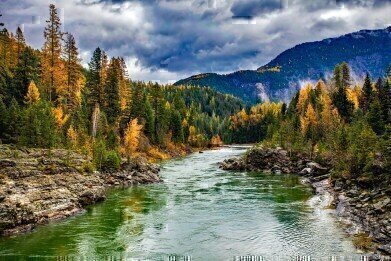News & Views
What Would Happen if Humans Ceased to Exist?
Oct 28 2015
Humans have spent hundreds of thousands of years establishing themselves at the top of the food chain. With the earliest fossils of anatomically modern Middle Paleolithic humans dating back to around 200,000 years ago, the accomplishment has been a long time in the making. We’re all too confident in our ability to maintain this reign however there is a small chance that one day, humans could be wiped out altogether. Whether it’s from a fatal disease, nuclear warfare or the emergence of a new kind of predator, the possibility isn’t 100% impossible.
So what would happen if human extinction did come to light? Let’s take a look…
Animals roam free
Within a matter of hours our power plants would fun out of fuel and cease to operate. This would mean that across the globe the electric fences used to contain livestock and other animals would fail. As a result, 1.5 billion cows, 1 billion pigs and 20 billion chickens would run wild. Domesticated pets would also roam free, forced to compete with their wild counterparts for food, water and shelter.
Crumbling cities
For cities, human extinction would spell disaster. Weeds, vines and other plants would engulf metropolises, dams would collapse, buildings would fall into disrepair, subways would flood, roadways would crumble and metal bridges would rust away to nothing. Garbage would ironically endure, with non-biodegradable plastics and rubbers leaving a lasting footprint.
The little things live on
While humans may be out, life on earth would most definitely go on. Science writer Michael Tennesen argues that nature is a powerful and resilient force, explaining “Plants, animals, and microbes will survive, adapt, diversify, and proliferate. The world will be wild and undomesticated, with Tennesen predicting that “New plants will evolve to vanquish our monocultures of corn, wheat, and rice. With far fewer animals around, those species that survive the bottleneck of extinction will move into newly abandoned spaces. With little competition, they will thrive and rapidly evolve.”
So what can we do to avoid human extinction? Celebrated scientists such as Stephen Hawking have proposed that the colonisation of other planets within the solar system could augment the chance of human survival.
While scientists might not be serious about preserving human life, they are making efforts to preserve biodiversity. ‘Banking on Sterilisation’ explores the role of West Sussex’s Millennium Seed Bank Partnership and how researchers are using an Astell autoclave for essential sterilisation processes. The lab is the largest ex situ plant conservation programme in the world, focussing on species under threat of extinction. Seeds are saved as an insurance against the risk of annihilation in their native habitats, thus ensuring that they will be available for decades to come.
Digital Edition
LMUK 49.7 Nov 2024
November 2024
News - Research & Events News - News & Views Articles - They’re burning the labs... Spotlight Features - Incubators, Freezers & Cooling Equipment - Pumps, Valves & Liquid Hand...
View all digital editions
Events
Nov 18 2024 Shanghai, China
Nov 20 2024 Karachi, Pakistan
Nov 27 2024 Istanbul, Turkey
Jan 22 2025 Tokyo, Japan
Jan 22 2025 Birmingham, UK




.jpg)














